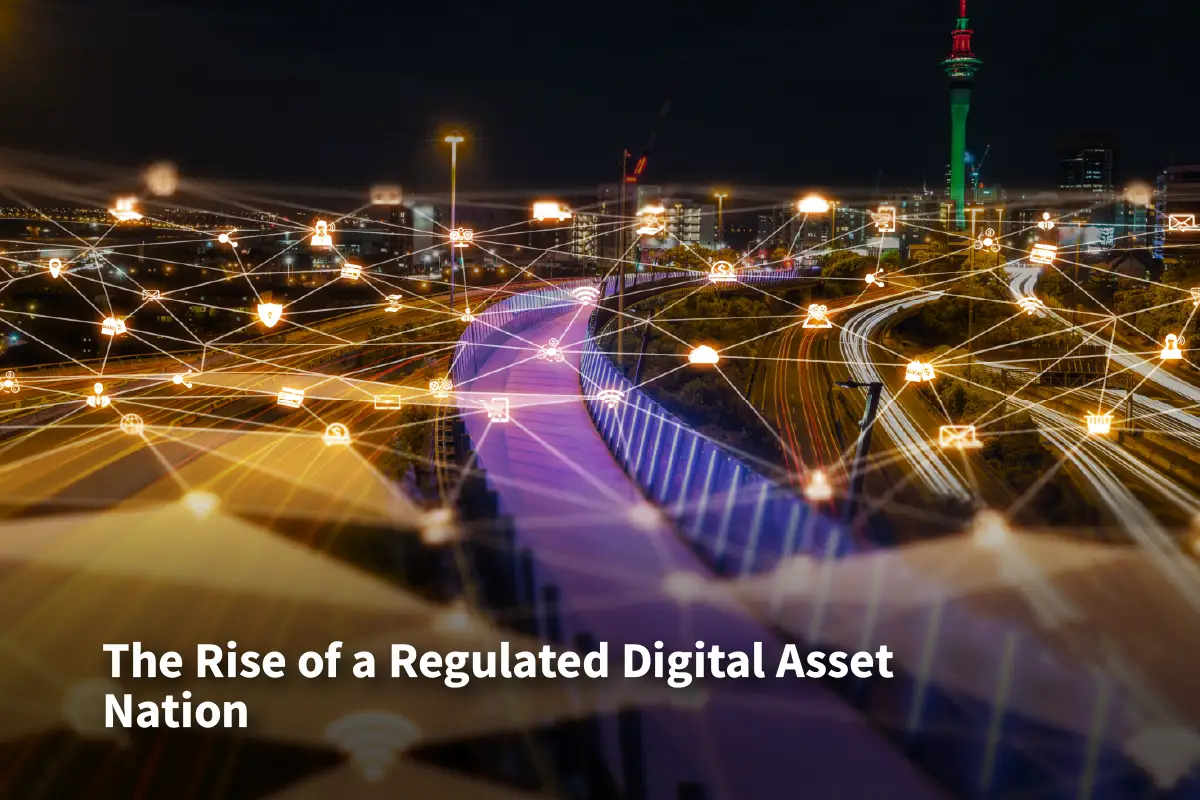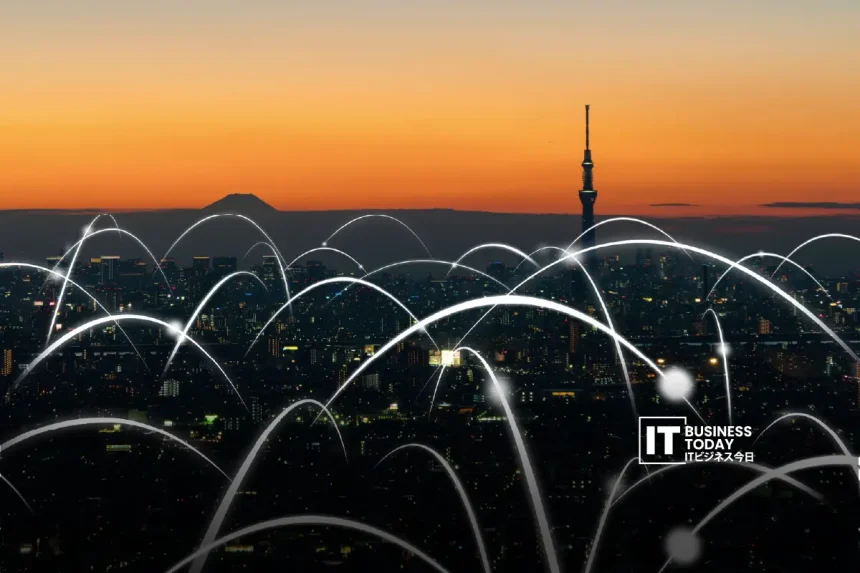Tokyo’s Kabukicho district buzzes with neon lights. This lively scene contrasts with the calm of ancient temples nearby. Japan’s financial and tech center is seeing a big change. This mix of tradition and innovation drives the transformation. Japan is quietly creating a leading ecosystem for digital assets and Web3 finance. Japan’s approach to crypto is careful and methodical. They focus on regulations first. Their goal is to tokenize everything. This means changing real assets and financial tools into digital tokens on the blockchain. Business leaders in this archipelago must understand this emerging landscape. It’s key to staying competitive and unlocking new value.
The Rise of a Regulated Digital Asset Nation

Japan’s strategy goes beyond just the ups and downs of cryptocurrency. The nation learned tough lessons from early crypto exchange failures. It didn’t reject crypto. Instead, it built the world’s most complete rules for crypto assets. According to PwC Japan, over 31 crypto asset exchanges have been registered with the Financial Services Agency (FSA) under the revised Payment Services Act and Financial Instruments and Exchange Act. These changes showed that exchanges need strong security, custody, and anti-money laundering rules. This strict regulation is tough, but it built a rare trust in the global crypto world. Japan is serious about building a responsible digital asset market. This message reached big banks and companies.
The groundbreaking moment arrived with the Stablecoin Act. Japan led the way in accepting stablecoins. These are digital tokens tied to stable assets, like the yen. They are considered real money if they are backed by cash or cash equivalents. Also, they must be issued by licensed banks, trust companies, or money transfer agents. Japan became the first major economy to implement a stablecoin law in June 2023. This was more than just making a digital yen. It was about building the key systems for a tokenized economy. Stablecoins offer a reliable way to exchange and account for complex financial deals. They are key for trading tokenized real estate, bonds, intellectual property, and supply chain assets. Picture quick and easy deals for multi-million dollar trades in prime Tokyo real estate. This is the promise of regulated stablecoins.
Also Read: From Factories to Forests: How Japan’s Versatile Robots Are Tackling Labor Shortages
Traditional Finance Embraces Tokenization

Japan’s strong financial institutions are not being disrupted. Instead, they are leading the way in building this new ecosystem. They see tokenization as a helpful tool, not a threat. It boosts efficiency, increases liquidity, and helps create new products.
- Mega-Banks Take Action: Mitsubishi UFJ Financial Group (MUFG), Mizuho, and Sumitomo Mitsui Financial Group (SMFG) are leading the charge, not just experimenting. They are making big investments. MUFG’s ‘Progmat’ platform is a standout example. Progmat is a secure and flexible system. It helps you create and manage digital securities and stablecoins. It aims to be the foundation of Japan’s tokenized economy. It’s made for strong security and compliance. This directly meets the main worries of cautious corporate treasurers and asset managers. Think of it as the regulated framework. It covers everything from tokenized corporate bonds to loyalty points. These points can be exchanged across partner networks.
- Securities Tokenization Gains Traction: The Tokyo Stock Exchange is exploring digital securities trading. The idea is simple but groundbreaking. It shows that traditional assets like stocks and bonds can be owned as digital tokens on a blockchain. The benefits are compelling. Settlement times usually take days (T+2 or longer). However, they can drop to near-instantaneous (T+0 or T+1). This change frees up a lot of capital that is currently tied up in the settlement process. Fractional ownership makes it easier for more investors to access valuable assets. This includes things like commercial real estate and fine art. Enhanced transparency through immutable ledgers reduces fraud and simplifies audits. We’re seeing pilot projects in action. Real estate investment trusts are tokenizing parts of prime office buildings. Regional banks are looking at tokenized SME loans to boost secondary market liquidity. Also, major corporations are considering tokenized green bonds to draw in ESG-focused capital. Globally, the tokenized asset market is expected to reach US$ 16 trillion by 2030, with Japan set to be a key contributor.
Unlocking Real-World Value
The potential extends far beyond the balance sheets of banks. Tokenization will change how Japanese businesses manage assets. It will help them connect with customers and enhance operations.
- Supply Chain Revolution: Japan’s complex manufacturing and logistics networks can gain a lot. Tokenizing physical goods in the supply chain makes a clear, unchangeable record. Track a high-precision part from a Toyota supplier. Check each step: factory, shipping, customs, and final assembly. Each step is verified on-chain. This cuts down on counterfeiting. It also makes it easier to verify the origin of luxury goods and pharmaceuticals. Payments are automated when delivery is confirmed through smart contracts. Plus, it improves inventory management. Major trading houses and manufacturers are actively exploring these use cases.
- Intellectual Property Reimagined: Tokenizing IP in a creative nation opens up new chances. This includes patents, copyrights, and royalties. Creators and inventors can license fractional rights easily. They receive micropayments automatically through smart contracts when their IP is used. They can unlock liquidity by selling parts of future royalty streams. This avoids complex legal structures. Media companies and game developers see new ways to engage fans and make money.
- Loyalty and Engagement Revamped: Many old loyalty programs face issues like fragmentation and low redemption rates. Tokenizing loyalty points on blockchains allows consumers to combine points from airlines, retailers, and credit cards. In Japan, over 70% of consumers participate in some loyalty program, but only 30–40% regularly redeem points. They could trade points with others or use them for small payments. This turns static points into lively, user-controlled digital assets. It greatly boosts engagement and brand loyalty. Major retailers and service providers are piloting such concepts.
- Real Estate Liquidity Unleashed: Japan has a big real estate market. But outside central Tokyo, it often struggles with illiquidity. Tokenization allows for fractional ownership of properties. Investors can buy tokens for a share in a luxury apartment in Roppongi or a logistics warehouse in Osaka. This lowers the barrier to entry and opens up new investment opportunities. It also creates new secondary markets for these tokens. This brings much-needed liquidity to an asset class that usually lacks it. Real estate developers and investment funds are at the forefront here.
Challenges and Strategic Imperatives
This journey is not without headwinds. Regulatory frameworks are getting better, but they are still changing. This is especially true for DeFi (Decentralized Finance) and how we tax complex token transactions. Ensuring robust cybersecurity for critical financial infrastructure handling tokenized assets is paramount. Bridging the knowledge gap is key. We need to teach executives, legal teams, and compliance officers about blockchain, smart contracts, and digital asset custody. This challenge is still significant. Different platforms and blockchains must work together. This requires ongoing focus to prevent new silos. Public perception remains cautious due to past crypto issues. We must keep teaching people about real business benefits, not just guesses.
The Strategic Mandate for Japanese Business Leaders
Japan’s business leaders must pay attention: tokenization is not far off. It’s gaining speed right now. Ignoring it risks obsolescence. Embracing it strategically unlocks transformative potential. Consider these imperatives:
- Learn and Discover: Understand blockchain basics, tokenization, and Japan’s new rules. Encourage finance, IT, legal, and strategy teams to look into uses in your industry and for your assets.
- Engage with the Ecosystem: Keep an eye on updates from the FSA, the TSE, and projects like Progmat. Participate in industry consortia. Link up with regulated digital asset custodians, Web3 legal firms, and tech providers that offer trustworthy enterprise blockchain solutions.
- Identify High-Impact Use Cases: Conduct internal audits: Where are your inefficiencies? What assets are illiquid? Where is provenance critical? Where could fractional ownership or automated payments create value? Pilot focused projects. Tokenizing internal supply chain tracking could be a safer first step than issuing public digital securities.
- Prioritize Security and Compliance: This is non-negotiable in Japan’s environment. Partner with providers adhering strictly to FSA guidelines. Invest in robust custody solutions and cybersecurity measures. Make regulatory compliance the cornerstone of any tokenization strategy.
- Think Beyond Finance: The main focus is on financial tools. Real benefits include better operational efficiency, clearer supply chain visibility, and new ways to engage customers. These improvements come from tokenizing real-world assets and data.
The Quiet Revolution Continues
Japan’s journey to ‘Tokenized Everything’ shows its main traits: careful, cooperative, and based on stable rules. The wild west phase of crypto is fading. It’s being replaced by a structured system. Trusted institutions are building this new ecosystem on secure foundations. The neon glow of innovation doesn’t replace the calm temples of tradition. Instead, it lights new paths based on Japan’s financial heritage. Smart business leaders see that tokens are digital signs of lasting value. This value can now move quickly, reach more people, and be managed more efficiently than ever. The ecosystem is emerging. The question isn’t if tokenization will change Japanese business. It’s about when and how well you’ll use its potential. Japan is leading the way in digitizing value, one token at a time.








